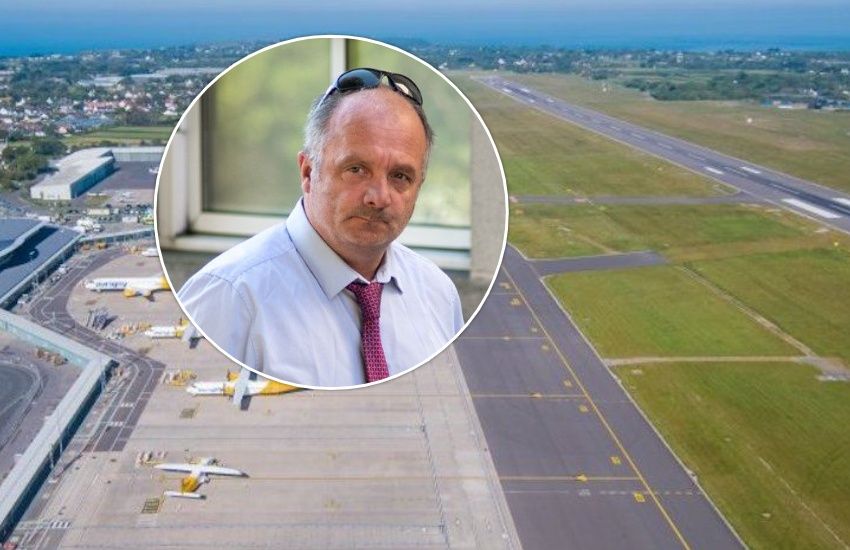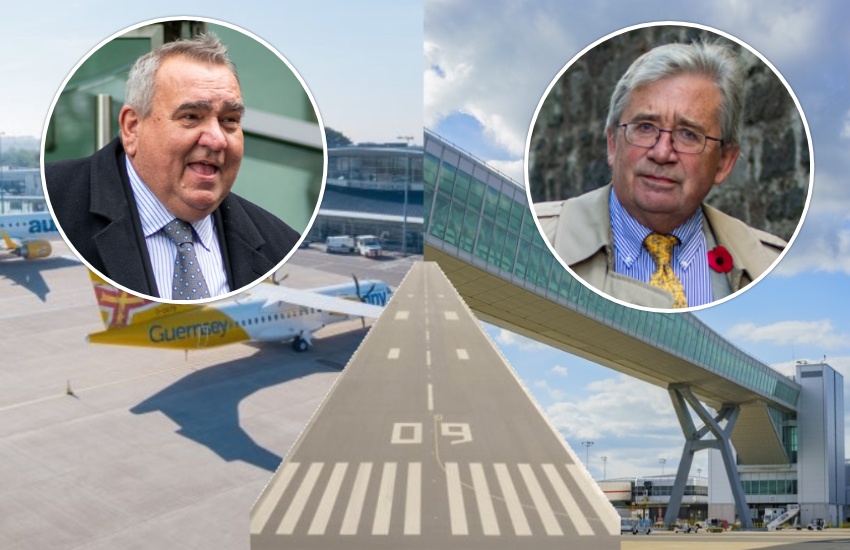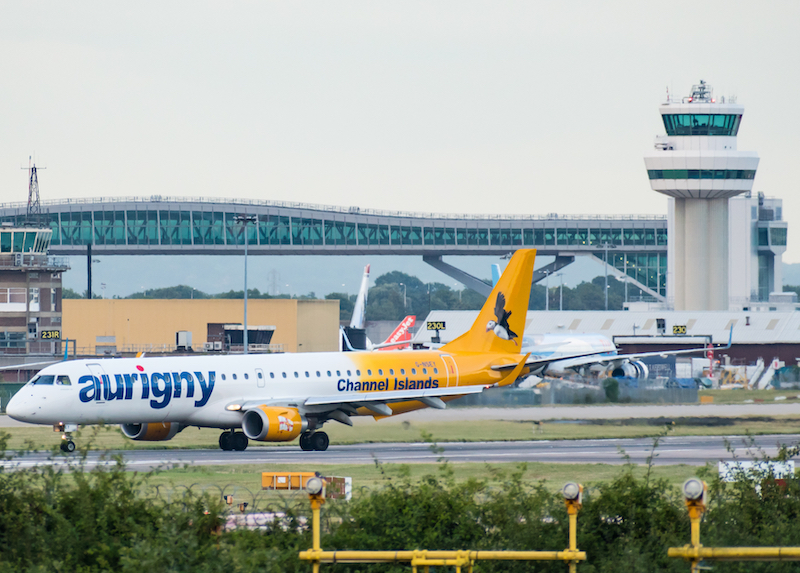


An attempt to extend Guernsey’s runway within the airport boundaries by 2025 has been heavily rejected by deputies – but the future of the tarmac will be considered again.
Deputies Simon Vermeulen and John Dyke had wanted the States to get on with installing an EMAS – a new form of safety system which stops aircraft from overrunning on takeoff or landing – which would allow for a technical extension of the runway to 1,623m.
But that attempt was defeated by four votes to 28. Six abstained, while two were absent.
The States instead backed Economic Developments preferred option – to hand back responsibility for considering whether there should be an extension in future to the States Trading Supervisory Board, based partly on commercial considerations, and considering cost-benefit analysis.
That will be looked at again when the runway next requires receiving, likely to be in five to 10 years, and EMAS will form part of investigations.
Two late amendments were submitted by Deputies Vermeulen and Dyke after protestations from some politicians that they would abstain on the vote, while others questioned if significant additional works would be needed to strengthen the runway and taxiways to support heavier aircraft.
The first asked the STSB to sample the runway pavement surface and report back by January 2024 to understand the true condition of it. The other asked Economic Development to consult with the tourist industry to gauge the appetite for a tax on visitors to fund, entirely or in part, the EMAS installation.
The first failed to win enough support to be debated, while the second was rejected by a significant margin.
Deputy Vermeulen had urged the States to “go for growth”, and that EMAS was “a gift” as it allowed for a technical extension without the re-routing of roads and destruction of agricultural fields for a fraction of the capital cost.
Meanwhile Deputy Neil Inder, leading the charge on behalf of the rest of Economic Development, said the EMAS amendment was “entirely misleading” as costs wouldn’t be contained to £22m, with other non-economic costs were also possible.

Pictured: Deputies Vermeulen and Dyke, who tried to get the States to deviate from Economic Development's plans.
Deputy Inder relayed cautionary tales from the other Crown Dependencies of the dangers of attempting to attract low-cost carriers, which often required either the ports waiving landing fees or incentivising private airline to the tune of millions of pounds per year.
“Based on the experience of Jersey, and the Isle of Man, low-cost carriers may also be more likely to cancel their services earlier than Guernsey-based airlines when inclement weather is forecast or anticipated. They're also more likely to scale back service frequency during quieter times of the year. All of this would impact the quality of our air links,” he said.
He warned that any dominant carrier would demand access to the island’s slots at Gatwick, causing Aurigny to drop aircraft, staff and passengers causing multi-million-pound losses as it refocused operations on regional routes.
“So, what happens when the low-cost carrier decides to reduce its capacity on Gatwick or to leave the routes altogether? By then Aurigny would have disposed of its excess aircraft and reduced its workforce. It would not be in a position to rescue the route, at least not in the short term. This would pose a significant risk to the continuity of air services to our lifeline routes to Gatwick,” he said.
“Who would risk that? Would we really be prepared to accept that risk? Well, I know I won’t.”

Pictured: It was warned there would be dire consequences to the island's key Gatwick routes if Aurigny was displaced.
Deputy Inder added that at least two airline in competition are required to make the low-cost carrier model work, while the amendment was likely to damage service levels compared to what is currently on offer.
“A low-cost carrier name emblazoned on the side is not a low-cost carrier. It is just a jet. A true low-cost carrier only works where there are large areas of passengers and at least two carriers are in competition with each other. This will not be a competitive route. If the States decided to carry on this route, it would just be a narrow body jet with a sticker on the side.
“Under this model, Guernsey would be asking its main lifeline route to be given to a so-called low-cost carrier jet which will be subsidised to the tune of something of £2.5m million pounds per year."
UK-based airlines would be less likely to fly early in the morning, late at night, and in inclement weather damaging critical daily business travel, he added. Fares may come down initially but would soon rise because of these problems.
Deputy Inder rejected the idea that Aurigny could lease its slots to another airline, saying if the latter decided to limit or withdraw from routes “the slot coordinator at Gatwick could recover those unused slots and they would be lost”.
Many deputies echoed the concerns on the impact to the publicly owned airline, at a time where it appears to be turning a commercial corner.
Deputy Dyke argued that fears about the strength of the current tarmac were a “red herring” due to uncertainty over the condition of the runway and the frequency of heavier aircraft should they operate from the island.
He added that other cost factors cited in opposition to the amendment, such as upgrading the terminal for more passengers, could be achieved modestly by utilising the upstairs area of the airport for post-security passengers.
Deputy Charles Parkinson said growth considerations were largely absent from runway discussions, and noted that there were other blockages to developing air connectivity such as securing landing slots at Heathrow which the island used to enjoy.
Pictured (top): Deputy Neil Inder, Economic Development President.
Fresh fight for runway extension
STSB surprised at proposed runway responsibility – doubt extension will ever happen
Runway extension to be put on the back burner under latest proposal
Aviation specialists reach damning conclusions on runway extension
Comments
Comments on this story express the views of the commentator only, not Bailiwick Publishing. We are unable to guarantee the accuracy of any of those comments.